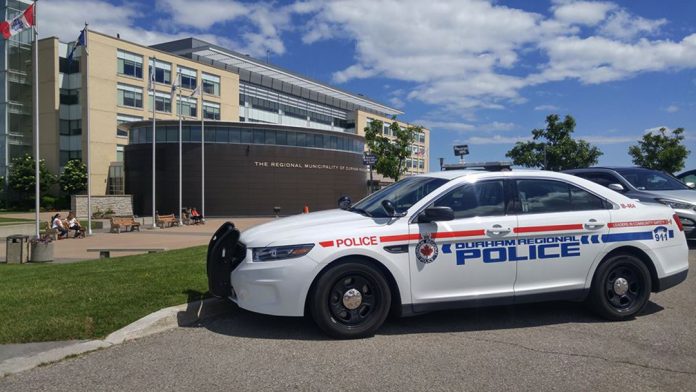Among locals, the city of Oshawa has always maintained a reputation for being lower-than-average when it comes to safety. Last year, crimes like car theft, assault and even homicide were all reported.
In Oshawa, however, incidents of sexual violation stand out among the rest.
Despite trends on the Durham Regional Police Service Crime Map showing that petty crimes are lowering, it’s clear that sexual-related offences are still a major problem plaguing the city of Oshawa.
According to the map, in 2022 alone, there were 208 separate and distinct sexual violence crimes committed in Oshawa alone, not including other regional municipalities.
This statistic for Oshawa in 2022 is shocking. What’s even more shocking is that these incidents are on the rise, not the decline.
There have been 866 separate cases of sexual-violence crimes in Oshawa since 2019, with an average of 216.5 per year in the city, according to the map.
To put these numbers into perspective, when compared to neighbouring towns such as Whitby and Ajax, only 74 and 69 cases, respectively, were reported in 2022, according to the crime map.
This apparent pattern and upwards trend in sex crimes in the area is not something that has been lost upon members of the Durham Regional Police Service. Chris Bowie, the director of corporate communications for the DRPS, said they are well aware of these incidents.
“We have seen an increase in sexual assault cases [in Oshawa],” said Bowie, “We are seeing victimization by age 14-20 for females especially.”
Even with the area seeing such a large spike in cases, Bowie said there could be more isolated incidents that the public is unaware of. He said schools “may be influencing” sexual violence reporting.
What Bowie means by this is that a big issue around sexual violence crimes is “how much actually gets reported.” Due to the stigma surrounding sexual-violation crimes, survivors may not be as inclined to report such incidents, resulting in data loss.
Bowie also said that there are around 450 registered sex offenders within the Durham Region and that trying to keep track of over 1000 high-profile offenders has been a big task for the DRPS.
With many cases of sexual-violation crimes in Oshawa, the city has taken steps on multiple levels and platforms to reduce these types of crimes and to help those who have undergone trauma.
In order to support sex-related victims, DRPS partners with the domestic violence unit, which is part of Durham region.
The Durham Rape Crisis Centre (DRCC) is a local feminist organization “committed to taking an active role in the community to end all forms of violence against women and children.”
Emma Conner, the community and crisis service manager at the DRCC, said that some of the resources available at the centre include scheduled one-on-one counselling sessions, a 24-hour crisis and support line, and weekly support groups.
Conner also said that education at a younger age about healthy relationships, bodily autonomy, and active and informed consent are all things that will help lessen the risk of sexual-violence crimes from occurring.
“It does not serve anyone’s safety by not having very clear and very open conversations with a potential romantic partner about where are your limits and boundaries, what feels good and what doesn’t,” Conner said. “We don’t talk about sex enough, and because of that, it leads to violence.”
Although according to Conner, counselling sessions with the DRCC are backed up close to a year-long, survivors can still access the centre through the 24-hour crisis line for immediate help and assistance.
“Any person that they reach on our counselling line, whether it or our crisis line, whether it’s staff, whether it’s a volunteer or myself, we will be able to connect them with our intake worker,” Conner said.
With cases of sexual violence crimes in Oshawa reaching high levels, a genuine concern would be the safety of students at local post-secondary schools, Durham College and Ontario Tech University.
Durham College is aware of the risks and has taken steps to have support systems for students regarding sexual violence crimes. Informal reports can be made to the Office of Student Diversity, Inclusion, and Transitions.

Tyler Creces is the sexual violence educator and support coordinator at Durham College. She connects students to resources such as the campus health and wellness center, wellness coaches, support hubs and even back to the DRCC through collaboration with them.
She shares a similar view as Connor when it comes to the prevention of such crimes. Once again, education is the main focus.
“It’s not just we teach kids about consent once, and then we move on, it’s throughout your entire life you’re having those conversations and being comfortable with the conversation too,” Creces said, “The more we normalize it, the more we can, understand people’s boundaries and even be more available to support someone if something happens.”
Students looking to contact the office can contact them via email at diversity@durhamcollege.ca or through the sexual violence hotline from any phone on campus at extension 3100.
With support groups growing in both our local schools, as well as the region itself, sexual violence support can help continue to combat the negative trends we see in our communities.




